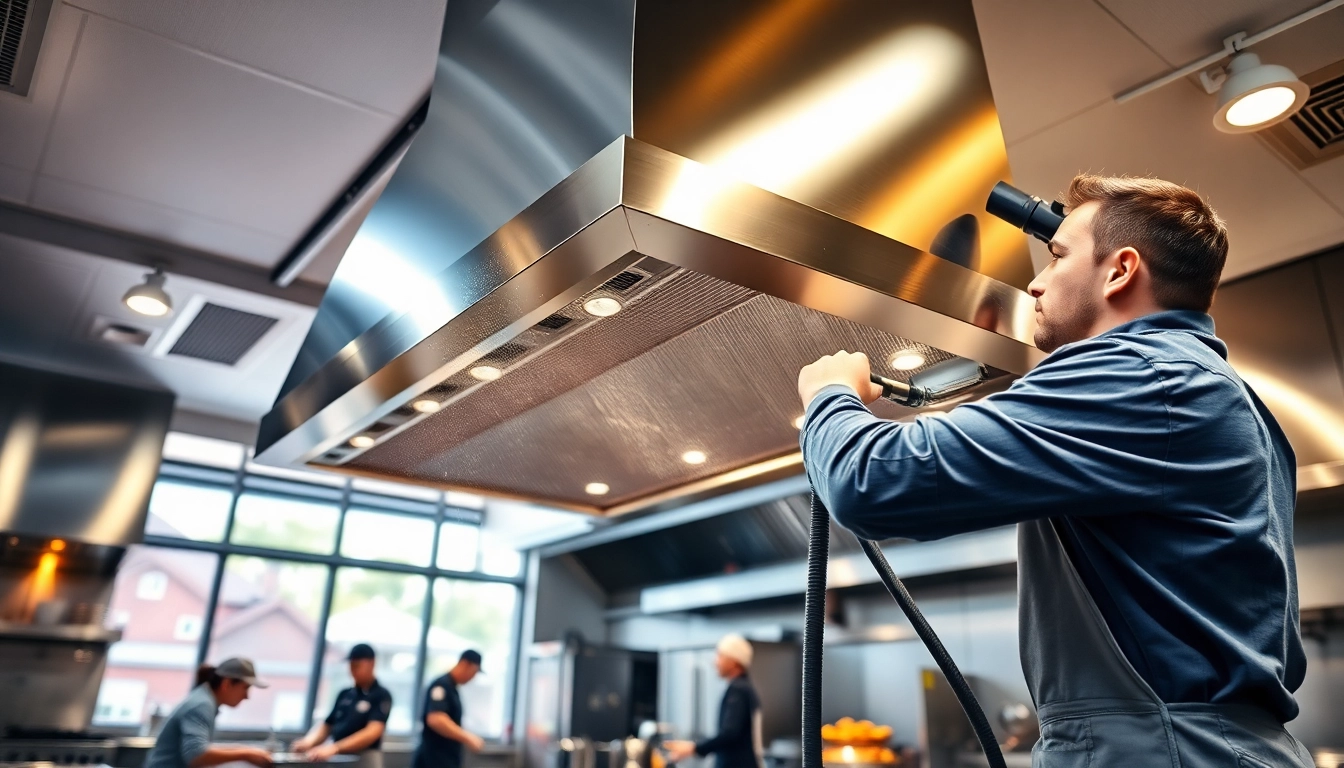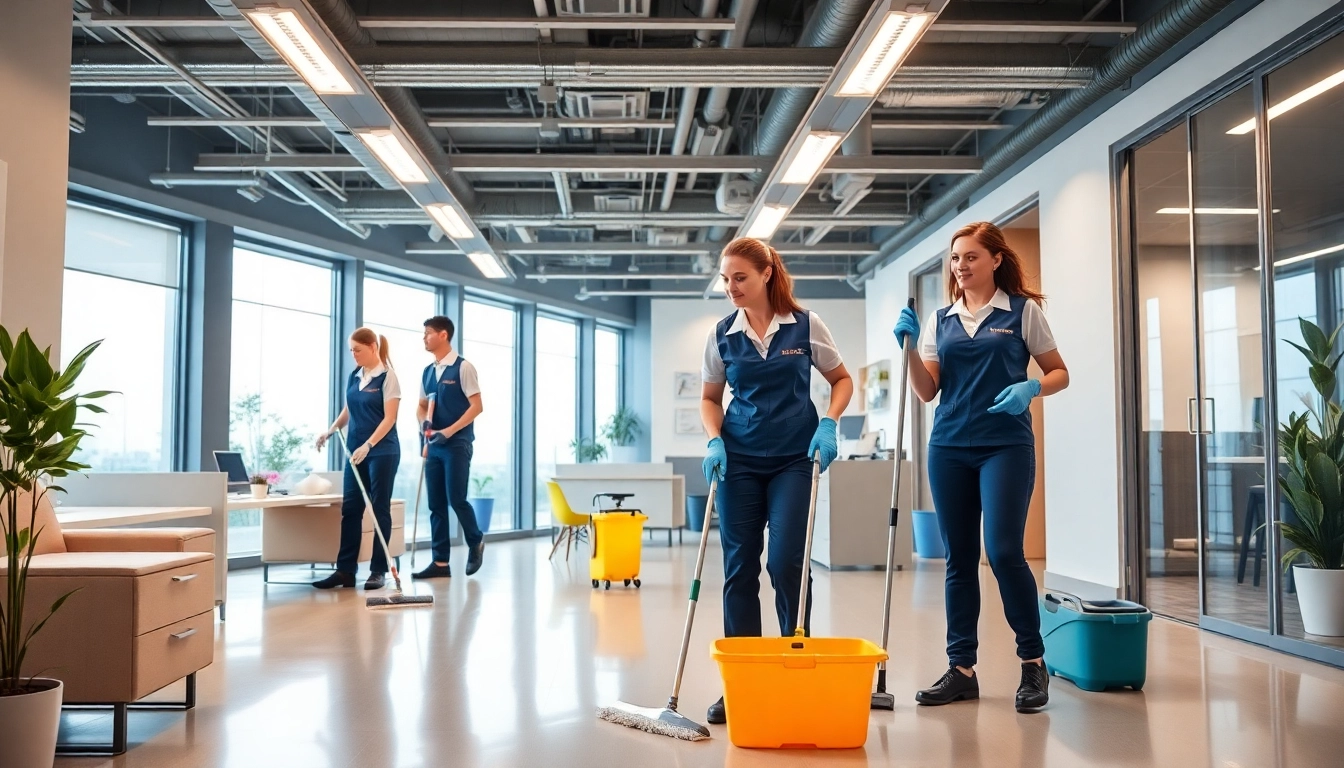The Importance of Restaurant Exhaust Hood Cleaning Service
In the bustling environment of a commercial kitchen, the importance of maintaining cleanliness cannot be overstated. One critical aspect that often gets overlooked is the exhaust hood, which plays a vital role in ensuring the safety and efficiency of kitchen operations. Proper maintenance and regular cleaning of the exhaust hood not only mitigate fire risks but also adhere to health and safety regulations. More importantly, a well-maintained hood system can significantly improve air quality, creating a better dining experience for customers. Neglecting this aspect can have dire consequences, which is why opting for a professional Restaurant Exhaust Hood Cleaning service is essential.
Understanding Fire Risks in Commercial Kitchens
Commercial kitchens are inherently high-risk fire environments due to the large amounts of grease, heat, and cooking materials involved in daily operations. According to the National Fire Protection Association (NFPA), the leading cause of kitchen fires can be traced back to the cooking equipment, often exacerbated by grease buildup in exhaust systems. Grease-laden vapors that accumulate in exhaust hoods are highly flammable, posing a significant fire hazard. Regular cleaning helps to remove these hazardous deposits, ensuring that your kitchen remains compliant with safety standards and free from potential fire outbreaks.
Health and Safety Compliances
Adhering to health and safety regulations is not just a recommendation but a requirement for operating any commercial kitchen. Local health codes typically mandate that exhaust systems be cleaned regularly to eliminate any contaminants that could affect food safety. Failure to comply can result in hefty fines, closure of the establishment, or worse, adverse health effects for customers. Professional cleaning companies often provide certification of service, reassuring both regulatory bodies and diners that the establishment takes hygiene seriously.
Improving Air Quality for Better Dining Experience
The quality of air within a restaurant directly impacts the customer experience. A dirty exhaust hood can lead to unpleasant odors and poor air quality, detracting from the enjoyment of a meal. By utilizing a Restaurant Exhaust Hood Cleaning service, establishments can significantly enhance the air quality. This not only enhances the dining experience but can also boost staff morale, creating a more pleasant environment for everyone. Furthermore, improved air quality can reduce the likelihood of respiratory issues for staff and customers alike.
Common Challenges in Exhaust Hood Maintenance
Identifying Signs of Neglect
Many restaurant owners may not realize the symptoms of an improperly maintained exhaust hood until it’s too late. Signs of neglect can include an increase in smoke or odors emanating from the kitchen, visible grease buildup on the hood itself, or even higher energy bills due to inefficient systems. It is crucial for restaurant operators to be vigilant and recognize these signs early on to mitigate potential hazards and costly repairs down the line.
Cost Implications of Poor Maintenance
Ignoring the maintenance of exhaust hoods can have severe financial repercussions. Beyond the immediate risk of fire, which could lead to substantial property damage, the long-term costs associated with poor air quality and health violation fines can add up quickly. Frequent repairs to equipment that hasn’t been maintained can also drain operational budgets. Investing in regular professional cleaning can appear costly initially but is often more economical than the potential losses from negligence.
How to Schedule Regular Cleanings
Establishing a routine for exhaust hood cleaning is essential for consistent maintenance. Most experts recommend scheduling cleanings at least every three to six months, depending on the volume of cooking and grease production. To create an effective schedule, restaurant owners should assess their specific cooking styles, the type of food being prepared, and historical data regarding kitchen cleanliness and health inspections. In some cases, high-volume kitchens may need monthly cleanings. Coordinating these cleanings during off-peak hours can minimize disruption to operations.
Best Practices for Restaurant Exhaust Hood Cleaning Service
Choosing the Right Cleaning Techniques
There are various cleaning methods available for exhaust hoods, but not all are suitable for every establishment. The most effective technique often combines manual scrubbing with high-pressure washing for stubborn grease buildup. Additionally, the use of eco-friendly cleaning agents can enhance safety for kitchen staff while ensuring the exhaust system is thoroughly sanitized. Selecting a cleaning method should involve consultation with professionals who can tailor their services to meet specific kitchen requirements.
Utilizing Professional Equipment
Professional cleaning services employ specialized tools designed for deep cleaning exhaust systems, including high-powered vacuum systems and steam cleaners. These tools allow for a level of cleaning that cannot be achieved through standard equipment. Engaging a team equipped with the right technologies not only ensures a more efficient cleaning process but also safeguards the integrity of the exhaust system. Utilizing these specialized tools can extend the lifespan of equipment and enhance overall kitchen performance.
Creating a Maintenance Schedule
A well-crafted maintenance schedule is crucial for sustaining a clean and safe kitchen environment. This schedule should document all cleaning activities, outline responsibilities, and serve as a reminder for future necessary actions. Leveraging technology can also enhance tracking; various software solutions are available that help schedule maintenance events and send alerts when cleanings are due. By keeping a regular log of maintenance activities, restaurants can ensure accountability and compliance with health regulations.
DIY vs. Professional Restaurant Exhaust Hood Cleaning Service
Pros and Cons of DIY Cleaning
While some restaurant owners may consider performing exhaust hood cleaning themselves, it is crucial to weigh the pros and cons. DIY cleaning can save money, particularly for smaller establishments; however, the risks involved in not thoroughly cleaning the system can far outweigh the savings. Without the proper knowledge and equipment, owners may miss critical areas during the cleaning process, leaving grease buildup that can evoke health violations and fire risks.
When to Hire Professionals
Hiring professionals is advisable in several scenarios. If a restaurant experiences high grease production, cooks complex meals, or hasn’t conducted thorough cleaning in a long time, it is time to call in experts. Additionally, integrating external cleaning services may benefit establishments looking to maintain a pristine reputation while ensuring compliance with local health codes. Prioritizing professional services will provide peace of mind, knowing that qualified individuals are handling the intricacies of hood maintenance.
Cost Considerations
The cost of professional cleaning services varies widely based on factors such as kitchen size, service frequency, and regional market rates. Nonetheless, businesses should view these costs as an investment into safety and operational efficiency. Allocating a budget for regular cleaning services can save money long-term by preventing costly emergencies and maintaining high health standards that attract more customers. Collaborating with service providers to establish a custom plan that fits operational budgets can also optimize expenditures.
Measuring Success in Exhaust Hood Maintenance
Monitoring Hygiene Standards
Regular maintenance of the exhaust hood directly correlates to improved hygiene standards within a kitchen. Documenting the outcomes of each cleaning can help keep track of progress. Periodic inspections and maintenance audits should be conducted to ensure that the equipment fulfills cleanliness expectations and meets established health codes.
Assessing Kitchen Efficiency
Efficient kitchens are often a direct result of well-maintained equipment. Observing the performance of cooking appliances alongside monitoring air quality can indicate the effectiveness of hood cleaning. Efficiency assessments can highlight improvements brought about by professional cleaning, allowing business owners to make data-driven decisions regarding future maintenance strategies.
Feedback from Health Inspectors
A vital component of measuring success is feedback from health inspectors. Regular inspections provide an external viewpoint on kitchen safety and cleanliness. Successful inspections without violations can serve as a benchmark, confirming that maintenance practices are effective. Engaging with inspectors and taking their feedback seriously can further enhance a restaurant’s cleaning practices and safety protocols.



